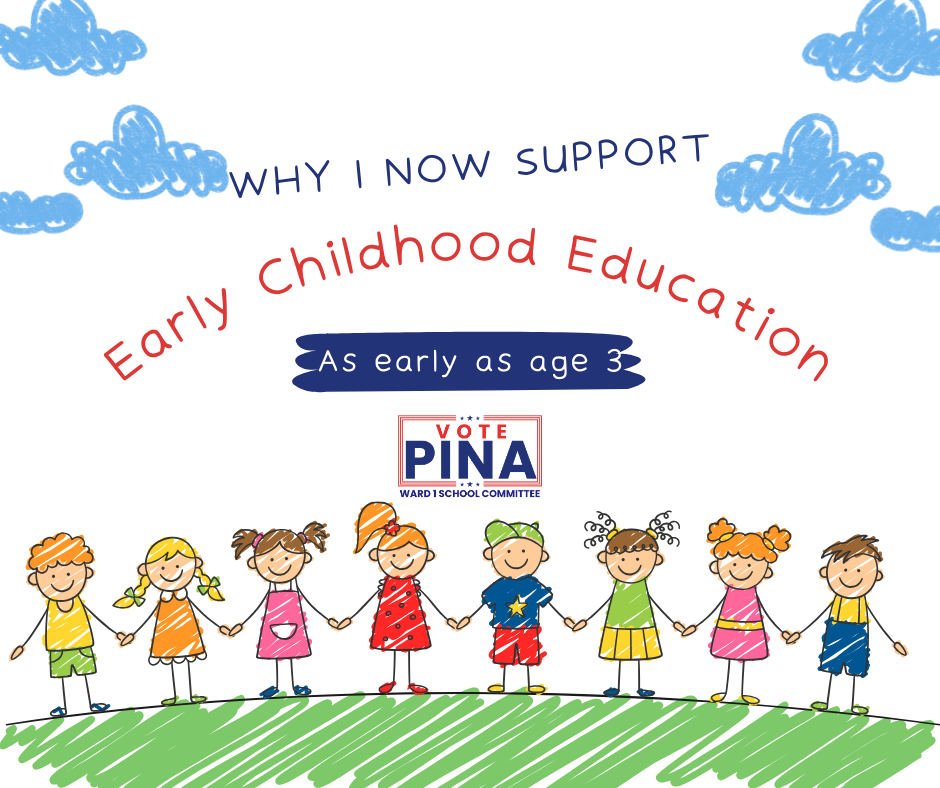Education is not a sprint — it’s a journey. As I’ve campaigned across Brockton, met with parents, listened to experts, and studied the evidence, I’ve come to a new conviction: we must invest in early childhood education beginning as early as age three.
I’m updating my policy to reflect what research, families, and common sense all agree on: early learning gives children the foundation to succeed, closes achievement gaps, and delivers big returns over time.
What the Research Shows: Long-Term Benefits of Early Education
The evidence is clear and growing. Here are key findings from respected longitudinal and randomized studies:
- Tulsa Educare Study (RCT follow-up): Children who attended high-quality early care and education (starting before age 3) scored significantly higher in vocabulary, math, and oral comprehension through grade 3 compared to peers who did not receive that early intervention. First Five Years Fund+1
- This suggests the gains don’t vanish — they persist over years.
- Some children in poverty reached national averages in those competencies. George Kaiser Family Foundation
- Abecedarian Project: Beginning in infancy and continuing through age 5, participants in a high-quality early education program showed lasting gains in reading, math, IQ, college completion, skilled employment, and lower criminal involvement compared to control groups. The Abecedarian Project
- Perry Preschool / Carolina & Other Classic Studies: Across multiple decades, children who had access to quality preschool programs were more likely to graduate high school, attend college, earn more, and avoid incarceration. GAFCP
- State-level readiness studies: In one district, children scoring high in school readiness had better third grade ELA and math results, higher middle school GPAs, and higher likelihood of on-time high school graduation. SF Department of Early Childhood
Taken together, this body of work shows that early education is not just a preschool luxury — it’s a strategic investment in human capital, equity, and community strength.
Why This Shift Matters for Brockton
When I began this campaign, I opposed municipal funding for childcare because our schools were already overburdened. But I’ve learned:
- Prevention beats remediation.
Investing early means fewer struggling readers later. It reduces the cost of remedial programs, special education, and dropout recovery. - Equity & opportunity.
Brockton’s diversity is a strength — but too many families lack access to early learning. Starting at age three levels the field, especially for children from low-income homes. - High returns on investment.
In the Tulsa study and others, every dollar invested in early care resulted in measurable academic gains — and over time, stronger earnings, reduced social costs, and better lifetime outcomes. - State & public priorities show what’s possible.
If the state is willing to fund massive programs (whether for non-citizens or free community college), we can and should commit to giving our children the foundational skills they deserve.
My New Policy: Early Childhood Education for All Starting at Age Three
Here’s what I’ll advocate for if elected to the School Committee:
- Municipal investment in early education starting at age 3 — not as a standalone luxury, but as part of a comprehensive plan tied to academic standards and long-term outcomes.
- High-quality programming rather than low-tier daycare. Teachers must be trained, class sizes small, and curriculum evidence-based.
- Partnerships with nonprofits, faith groups, and community centers to deliver early education without duplicating bureaucracy.
- Accountability benchmarks so the public can see whether this investment is delivering: metrics in kindergarten readiness, retention in later grades, literacy by grade 3, etc.
- Sustainable funding strategies — combining municipal, state, and philanthropic support — rather than overburdening taxpayers at once.
My Four Pillar Alignment: Reinforcing My Champion City Plan
- Raising Academic Standards: Early education gives students the literacy, vocabulary, and cognitive foundation to meet higher benchmarks in later grades.
- Safe & Disciplined Schools: Children who begin school ready and confident create more stable, respectful classrooms — reducing disruptions.
- Accountability to Taxpayers: I will demand the same transparency, dashboards, and ROI measures for early childhood funding as any other program.
- Real Pathways for Students: Early success makes it more likely a student stays on track, finishes strong, and has options—whether college, trades, or service.
A Leadership Decision, Not a Flip-Flop
I firmly believe leadership means listening, learning, and evolving when the evidence is clear. I’ve read the studies. I’ve listened to families. I’ve spoken with early education experts. And I’ve changed my position because children’s futures matter more than campaign convenience.
The full article with fiscal projections, implementation steps, and expected benchmarks is here: Coming Soon
Let’s give Brockton kids what they deserve—not what politics thinks they’ll settle for.


0 Comments